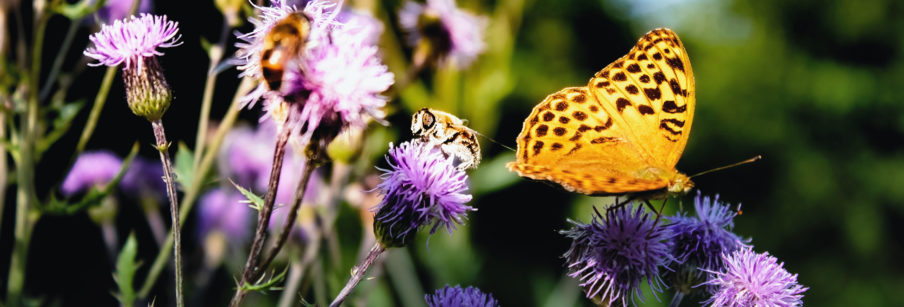6 Tips for Summer Gardening
Whether you’re just starting your garden or are looking to update flower beds for summer, here are six tips to help you achieve the summer garden you’ve always wanted.
1. Get to Know Your Plants
The easiest way to ruin a garden’s chances before you’ve even begun is to plant the wrong things. Doing your homework is as easy as talking to gardeners in your life and learning about the region you live in and what kinds of plants and vegetables it can support. You should also research what kinds of plants play nice together in a garden setting if you plan on having one bed for multiple plants.
Here are a few resources to help you figure out which plants are good for your summer beds and which should be held back for the cooler seasons.
- The Best Summer Flowers for a Standout Garden
- 15 Top Veggies to Grow in the Heat
- Native Plants by Region

2. Prepare Your Garden Before You Plant
Having a successful garden in the summer isn’t as easy as grabbing a few seedlings and tossing them into a hole. You need to have all the tools available so that gardening is as painless for you and as nutritious for your plants as possible.
Investing in fertilizer and soil is important if you want to get your garden off the ground (or in it, as it were). Fertilizers contain plant nutrients that will help them stay healthy. In the summer, if you fertilize your soil before you plant, ensure that you water the soil as the crystals in fertilizer will actually strip water from plants if they are not integrated with soil before you start watering your beds.
Check out this resource for how to choose the right fertilizer for your lawn or garden.
Beyond the right soil and plant food, having tools on hand to make gardening easier can help you incorporate gardening into your daily routine. Unsure of what to get? This list of essential gardening tools will help you find out.
3. Beat the Heat
Excessive, hot temperatures and a lack of shade are quick deterrents to having a garden that really gets a chance to flourish.
Ensure that your plants aren’t drying out by watering them frequently. Watering your garden early in the morning is essential if you plan to keep a garden flourishing in the summer so that your plants can stay hydrated during the warmest hours of the day. If you have plants you want to try out that aren’t great with direct sunlight, consider planting them near a structure or beneath tree cover so they can get sufficient shade.
If you’re in a particularly hot region, make sure that you’re planting plants that can withstand the heat. Plants like beans, corn, and peppers are built for the summer months and are great additions to your pantry. Herbs like basil, parsley, and rosemary grow up quickly in the summer and have hundreds of uses. Summer is a great time to grow vegetables, and also a great time to eat them!

4. Be Prepared for the Weeds
Weeds are a natural (pun intended) part of any garden, and in summer they come back with a vengeance.
If you’re new to gardening, it can be helpful to take some time to identify what plants are actually harmful weeds so you don’t remove anything unnecessarily. Removing weeds and dead flowers from your garden consistently can help you maintain a healthy garden with enough nutrients and moisture to go around. Ensure that you’re keeping an eye on which weeds are cropping up the most so you can plan ahead for next year’s gardening adventure.
Check out these tips for identifying and eliminating weeds from your garden.
If you’re into composting, weeds and dead flowers can make excellent green material for your compost. Be sure to research what kinds of weeds are best for your compost pile before you throw them in.
5. Say Yes to Wildlife
It can be tempting to keep your flower beds under lock and key, and we get it. Putting up a few deterrents to keep the deer out of your peppers is fine, but make sure you’re encouraging other forms of wildlife to engage with your garden. Keeping plants that are native to your biome or flowers that pollinators love to visit will help keep your garden healthy and thriving.
If you’re an active birder, purchase plants that are native to your region and establish a few layers of growth in your flower beds to easily attract birds, especially during the summer months when shady spots are hard to come by.
6. Take Care of Yourself While You’re Out in the Garden
Summer is a great time to be a vegetable, but a less than great time to be a human in the sun. Use sunscreen and stay hydrated while you’re out weeding and watering your plants. If you’re going to be outside for a long time, sunglasses and UV protective hats will keep you cool and sunburn free. Wearing gloves to protect your hands is a given, but if you’re worried about the heat consider investing in lightweight gardening gloves or taking frequent breaks.
The less irritated and tired out you are by the task of gardening, the more likely you are to keep up with it. Be kind to yourself and your plants, and they’ll be kind to you.

